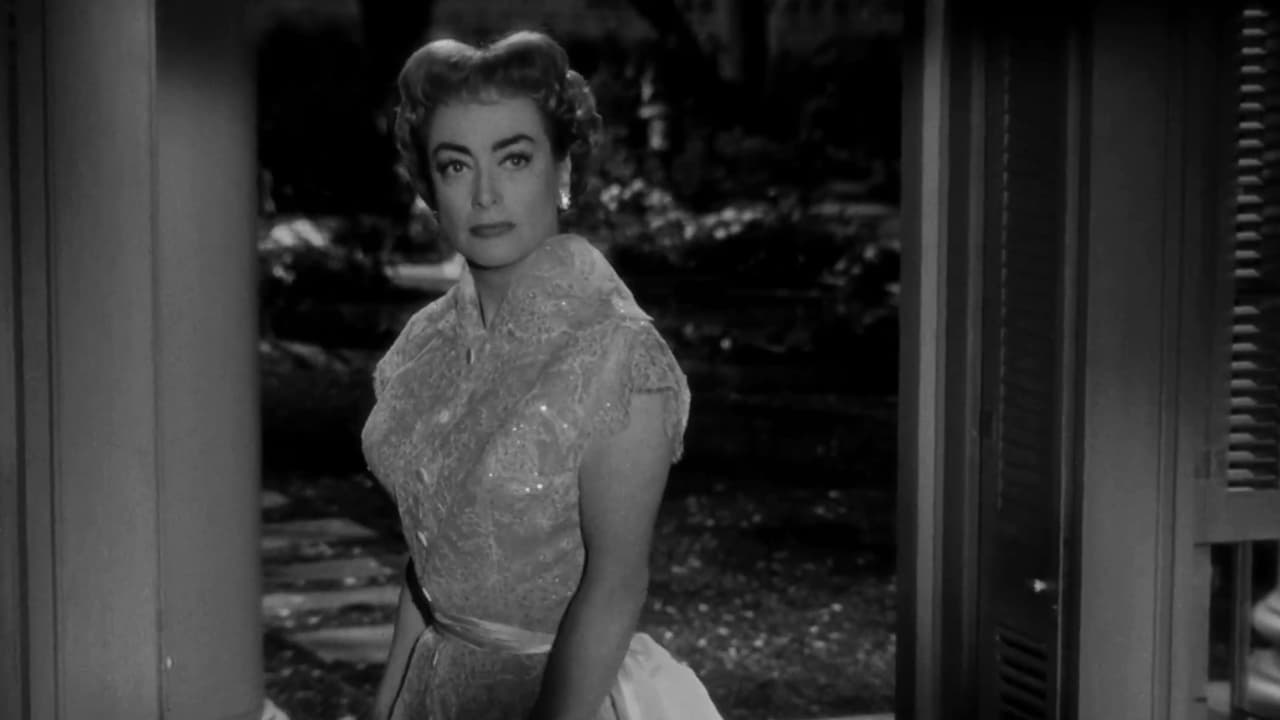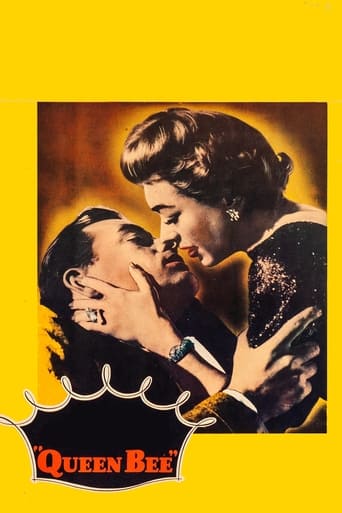

She is the lead actress. and the lead characters. and, using rumors, legends, the line between them is almost ambiguous. because, sure, at a very subjective view, the difference is missing. because her performance seems be a shark against her parteners. because the presence of Lucy Marlow and her decent work seems an error. that does "Quen Bee " more a good option for the fans of Joan Crawford. or good opportunity to discover her for a yong public. because, for her impressive job, a drama from "50 becomes a great lesson of seduction.
... View MoreThis is a melodrama and is obviously written for one reason and that is to be a melodrama. The result is a one-dimensional and at times seemingly slow film as scenes of pure melodrama follow one after the other. Joan Crawford was the master of the genre and she is terrific in this one, even getting intimidatingly physical at times, and shockingly so. You gotta see these scenes as she goes completely over the top, they are priceless.It all takes place in one house, with the characters constantly interacting in close quarters, as if scorpions in a bottle. This really doesn't work as well as it should because the characters have little or no development and in some cases no background. For example, all we really know about Crawford's character is that she came from Chicago and she is meaner than hell. Fortunately all of the acting is outstanding. Barry Sullivan gives one of his best performances, its maybe his finest ever. He is believable as Avery, the suffering husband and father of the Queen Bee's two children. The acting in "Queen Bee" is so good that it overcomes any shortcomings, making this a film I would recommend. It is one of the classic late-Crawford "eyebrow movies" and not to be missed.
... View MoreEvil Joan equals solid entertainment. Crawford digs her claws into this part relishing her chance, with her red slash of a mouth and latter day intensity, to mow down every person who is unfortunate enough to cross her path. It's true that once the fifties began Crawford's whole look and screen persona took on a much tougher sheen than the ambitious but feminine career woman on the make of the thirties and forties but nowhere would she be as reptilian as she is here. No one else has a chance to make much of an impression. Barry Sullivan is stolid as Joan's cuckold of a husband but John Ireland has a certain brooding attractiveness as Joan's next target. Betsy Palmer comes across with the best performance though all fall away under the steely gaze and are no match for the dragon lady.
... View MoreAnd you're not, Joan, in this Gothic 1955 soap. Joan's a Northerner who married into Southern aristocracy and rules the Tara-like mansion with threats, sarcasm, deceit, and in one memorable take, a quite real-looking slap at a prettier young actress. That's Lucy Marlow, who actually has what's probably the lead role in terms of length. But the focus is Joan, Joan, Joan, and while her evil-bitch persona is always entertaining--at this point in her career, she'd determined it was the way her fans wanted to see her, and she wasn't shy about pouring on the acid--it's not a very energetic or convincing movie. The children, for one thing. Aside from the fact that they're at least 20 years too young to be Joan's children (and Tim Hovey is an unusually annoying '50s kid actor), their relationship with the parental units isn't spelled out at all. What's their father (Barry Sullivan)'s attitude toward them, and vice versa? And is the ending meant to be, like, happy? And how are we supposed to feel about Jud (John Ireland)--hero or heel? It's like writer-director Ranald MacDougall just wanted to paste together a medley of evil-Joan moments and didn't really care whether the continuity made any sense. There are some memorable images, though, and a bevy of ugly '50s fashions, and the usual fawning over how lovely La Crawford is even though she isn't. That ought to keep you amused through the lulls.
... View More